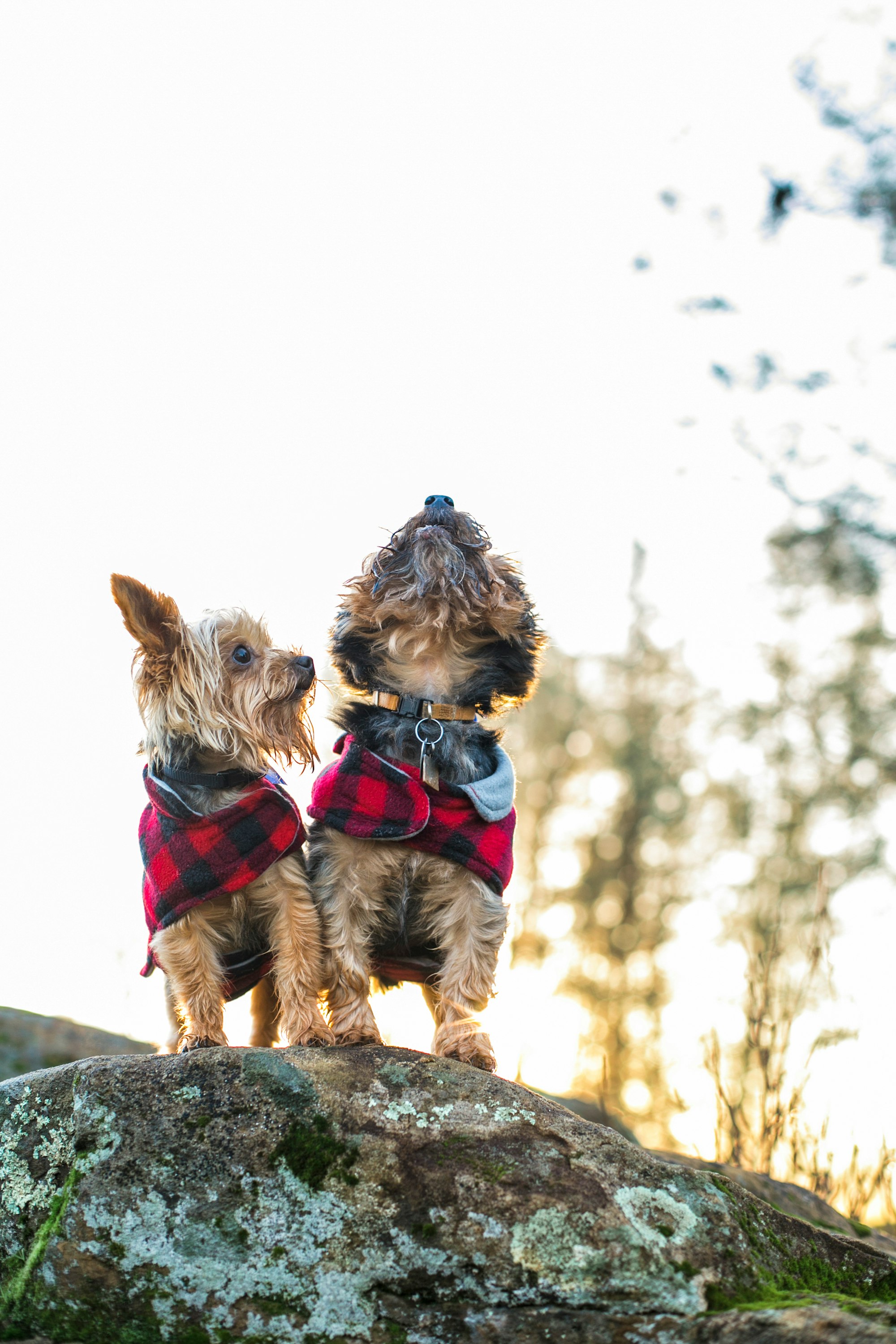Welcome to our comprehensive guide on Yorkie full grown! In this article, we will explore the growth and development stages of a Yorkshire Terrier (commonly known as a Yorkie), the factors influencing their growth, the average size and weight of a full-grown Yorkie, how to recognize their maturity, and tips for caring for a full-grown Yorkie. If you're a proud Yorkie owner or considering getting one, this guide will provide you with valuable insights into this adorable breed.

Understanding the Yorkie Breed
The Yorkshire Terrier, affectionately known as the Yorkie, is a small dog breed that has captured the hearts of many dog lovers worldwide. Known for their adorable looks and spirited personality, Yorkies make wonderful companions. Let's delve into some key aspects of the Yorkie breed to help you understand them better.
1. Origin and History
The Yorkie breed originated in Yorkshire, England, during the 19th century. They were initially bred as working dogs to catch rats in textile mills and mines. Over time, their popularity grew, and they transitioned into becoming beloved companion animals. Today, Yorkies are one of the most popular toy dog breeds.
2. Appearance
Yorkies are small good family dogs with a sturdy build. They have a long, silky, and glossy coat that comes in various colors, including black and tan, blue and tan, and gold. Their expressive eyes are usually dark and sparkly, complementing their overall adorable appearance.
3. Temperament and Personality
Despite their small size, Yorkies possess a big personality. They are known for their confident, bold, and adventurous nature. Yorkies are often described as spirited, lively, and feisty. They are intelligent and quick learners, making them suitable for training and learning tricks.
While they may be small, Yorkies have a lot of energy and love to play. They enjoy being the center of attention and thrive on human companionship. Yorkies are also known for their loyalty and affection towards their owners, making them excellent family pets.
4. Exercise and Training
Though they have a small stature, Yorkies still require regular exercise to keep them physically and mentally stimulated. Daily walks, interactive play sessions, and engaging toys are all beneficial for their overall well-being. Training should be positive, consistent, and reward-based to harness their intelligence and maintain good behavior.
5. Grooming Needs
The Yorkie's beautiful coat requires regular grooming to keep it in top condition. Daily brushing helps prevent matting and tangling, as well as keeps their coat looking sleek. Regular bathing, nail trimming, and ear cleaning are also part of their grooming routine.

6. Health Considerations
Like all dog breeds, Yorkies are prone to certain health issues. Some common health concerns in Yorkies include dental problems, luxating patella (knee dislocation), tracheal collapse, and eye conditions. Regular veterinary check-ups, a balanced diet, and proper care can help prevent and manage these potential health issues.

Understanding the Yorkie breed allows you to provide the care, attention, and environment they need to thrive. Their small size and lively personality make them a delightful addition to any household. Whether you're looking for a loyal companion or a playful friend, the Yorkie is sure to bring joy and love into your life.
Growth and Development Stages of a Yorkie
1. Newborn Stage: Yorkie puppies are born incredibly small, weighing only a few ounces. During the newborn stage, they are entirely dependent on their mother for nourishment and warmth. This stage lasts for approximately two weeks.
2. Puppyhood: After the newborn stage, Yorkie puppies enter the puppyhood phase. This is a crucial period of growth and development where they learn essential socialization skills, such as interacting with humans and other dogs. Proper care, training, and a balanced diet are crucial during this stage.
3. Adolescence: During adolescence, Yorkies go through growth spurts and hormonal changes. This is the stage where they transition from puppies to young adults. It's necessary to provide them with regular exercise, mental stimulation, and continued training to ensure their overall well-being.
4. Adult Stage: The adult stage begins when a Yorkie reaches its full physical and sexual maturity. Yorkies typically reach their adult size by the age of one year, although their behavior and temperament continue to evolve.
Factors Influencing Yorkie's Growth
The growth and development of a Yorkie are influenced by various factors that contribute to their overall size, health, and well-being. Understanding these factors can help you provide the best care and support for your furry companion. Let's explore the key factors that influence a Yorkie's growth:
Genetics
Genetics plays a significant role in determining a Yorkie's growth patterns. The genes inherited from their parents influence their size, body structure, coat type, and other physical characteristics. If both parents are smaller in size, it's more likely that the Yorkie pup will also be smaller as an adult. However, it's important to note that genetics are not the sole determining factor and that individual variations can occur.
Nutrition
Proper nutrition is crucial for a Yorkie's growth and development. A balanced diet that meets their specific nutritional needs supports healthy bone and muscle development, as well as overall growth. High-quality happy dog food formulated for small breeds is recommended, providing essential nutrients, vitamins, and minerals. Consult with your veterinarian to determine the appropriate diet and feeding schedule for your Yorkie.
Health and Veterinary Care
Good health is essential for optimal growth. Regular veterinary check-ups, vaccinations, and preventive care help ensure that your Yorkie remains healthy throughout their growth stages. Addressing any underlying health issues promptly can prevent growth complications and ensure they reach their full potential.
Exercise and Physical Activity
Regular exercise and physical activity contribute to a Yorkie's growth and muscle development. Engaging in daily walks, playtime, and interactive activities helps strengthen their bones, muscles, and joints. However, it's required to provide exercise appropriate for their size and avoid excessive strain or overexertion, as they are small and delicate.
Socialization and Environment
A Yorkie's growth is influenced by their socialization experiences and the environment they are raised in. Positive reinforcement and early socialization with various people, animals, and environments help develop their confidence and adaptability. A nurturing and stimulating environment that provides mental stimulation and opportunities for learning also contributes to their overall growth and development.
Spaying/Neutering
The decision to spay or neuter your Yorkie can also impact their growth. In some cases, spaying/neutering can lead to slightly slower growth and a smaller size compared to intact dogs. It's essential to consult with your veterinarian to determine the best timing and approach for spaying/neutering your Yorkie based on their individual needs.
By considering these factors and providing appropriate care, nutrition, and a nurturing environment, you can support the healthy growth and development of your Yorkie. Remember to consult with your veterinarian for personalized guidance and recommendations specific to your Yorkie's needs.
Average Size and Weight of a Full-Grown Yorkie
When it comes to Yorkies, understanding their average size and weight as adults is essential for proper care and management. While individual variations exist, there are general guidelines to give you an idea of what to expect. Here's an overview of the average size and weight of a full-grown Yorkie:
1. Standard vs. Teacup Yorkies
Yorkies are typically categorized into two main groups: standard and teacup. Standard Yorkies are the more common size, while teacup Yorkies are smaller.
2. Size Variations within the Breed
Within both standard and teacup Yorkies, there can be variations in size due to genetics, lineage, and other factors. It's important to note that while size is a characteristic of interest, a Yorkie's temperament, personality, and health are not solely determined by their size.
3. Average Weight of a Full Grown Yorkie
On average, a Full Grown standard Yorkie weighs between 4 to 7 pounds (1.8 to 3.2 kilograms). Their weight can vary depending on factors such as genetics, diet, exercise, and overall health. It's critical to maintain a healthy weight for your Yorkie to prevent obesity-related health issues.
Teacup Yorkies, being smaller in size, typically weigh less than 4 pounds (1.8 kilograms) as adults. These tiny companions require special attention to ensure their well-being, as they can be more delicate than their standard-sized counterparts.
4. Average Height of a Full Grown Yorkie
In terms of height, a standard adult Yorkie typically stands around 8 to 9 inches (20 to 23 centimeters) at the shoulder. Teacup Yorkies, being smaller, measure under 8 inches (20 centimeters) in height.
Remember that these are average measurements, and individual Yorkies may slightly deviate from these ranges. If you have specific concerns about your Yorkie's size or weight, it's best to consult with a veterinarian who can provide personalized guidance.
Understanding the average size and weight of a full-grown Yorkie can help you assess their overall development and ensure they are thriving. Remember to provide them with a balanced diet, regular exercise, and proper veterinary care to maintain their health and well-being.
Recognizing a Yorkie's Maturity
As your beloved Yorkie grows and develops, certain signs indicate their maturity. Recognizing these signs will help you understand and cater to their needs better. Here are some key indicators to look out for:

1. Physical Characteristics
When a Yorkie reaches full maturity, you will notice certain physical changes in them. Their body proportions will be fully developed, and they will have reached their adult height and weight. Additionally, their coat will have achieved its adult length and texture, showcasing the characteristic silky and lustrous appearance.
Another notable change is the development of their teeth. By the time a Yorkie reaches maturity, their adult teeth will have fully erupted, replacing their puppy teeth. Regular dental care becomes crucial at this stage to maintain their oral health.
2. Behavioral Indicators
Behaviorally, mature Yorkie will display a more settled and calm demeanor compared to their puppyhood. They will have established their preferences, habits, and social interactions. While they may still possess a playful and energetic nature, they will be more refined and balanced.
Mature Yorkies tend to exhibit a greater sense of independence and self-assurance. They are more confident in themselves and their surroundings, which contributes to their overall well-being. However, it's significant to note that individual personalities can vary, and some Yorkies may retain their youthful exuberance even as adults.
3. Emotional Bonding
As your Yorkie matures, the bond between you and your furry companion will deepen. They will become even more loyal and affectionate towards you and your family members. Their trust in you will be stronger, and they will seek comfort and security from your presence.
Mature Yorkies are known for their unwavering devotion to their owners. They thrive on human companionship and enjoy being an integral part of the family unit. This emotional connection is a beautiful aspect of owning a Yorkie and contributes to their overall happiness and well-being.
By being observant and understanding these signs of maturity in your Yorkie, you can provide them with the appropriate care, training, and attention they need. Celebrate their growth and enjoy the wonderful journey of companionship with your full-grown Yorkie!
Care and Maintenance of a Full-Grown Yorkie
1. Diet and Nutrition
Feeding a high-quality, balanced diet is crucial for maintaining a healthy weight and the overall well-being of a full-grown Yorkie. Consult with your veterinarian to determine the appropriate portion size and feeding frequency based on your Yorkie's size, age, and activity level.
2. Exercise and Mental Stimulation
Even as adults, Yorkies require regular exercise and mental stimulation to stay healthy and happy. Daily walks, interactive play sessions, and puzzle toys can help keep them physically and mentally active.

3. Grooming and Hygiene
Yorkies have a long, silky coat that requires regular grooming to keep it healthy and tangle-free. Brush their coat daily to prevent matting, and schedule regular professional grooming sessions for hair trimming and maintenance.
4. Regular Health Check-ups
Routine veterinary check-ups are essential to monitor your Yorkie's overall health. Regular vaccinations, dental care, parasite prevention, and screenings for common health issues are vital to ensure a long and healthy life for your furry companion.
Conclusion
In conclusion, understanding the growth and development stages of a Yorkie is essential for providing proper care and ensuring their overall well-being. From their newborn stage to adulthood, Yorkies undergo significant changes in size, behavior, and physical characteristics. By considering factors such as genetics, nutrition, exercise, and healthcare, you can help your Yorkie reach its full potential and enjoy a healthy, happy life together.
Frequently Asked Questions (FAQs)
Here are some most common frequently asked questions about full-grown Yorkies:
1. Can Yorkies grow bigger than their breed standard?
Answer· While rare, there can be variations in size within the breed. Some Yorkies may exceed the standard size due to genetics or other factors.
2. How long does it take for a Yorkie to reach its full size?
Answer· Yorkies typically reach their full size by the age of one year, but their behavior and temperament continue to develop over time.
3. Do Yorkies shed a lot?
Answer· Yorkies have hair instead of fur, which reduces shedding. However, regular grooming is necessary to prevent tangles and matting.
4. Are Yorkies suitable for apartment living?
Answer· Yes, Yorkies adapt well to apartment living. Their small size and exercise needs make them suitable for indoor living, provided they receive regular exercise and mental stimulation.
5. What are common health issues in adult Yorkies?
Answer· Some common health issues in adult Yorkies include dental problems, patellar luxation, tracheal collapse, and eye-related conditions. Regular veterinary care helps detect and address these issues early.






